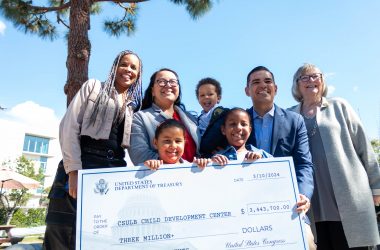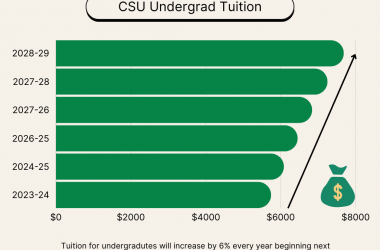The Cal State Long Beach Academic Senate overwhelmingly voted to pass a resolution requesting transparency in the search for the next university president last Thursday.
Twenty minutes were scheduled for discussion on the topic, but the resolution passed by a vote of 39-13 in less than half the allotted time.
The request will go to the Cal State University Board of Trustees Committee for the Selection of the President. The TCSP is the “ultimate body to make the final decisions” in the selection of the next CSULB president, according to the Board’s Policy on the Selection of Presidents.
The Academic Senate’s resolution “strongly encourages the [CSU] Chancellor and the TCSP to schedule official campus visits for the finalists in the search for a new president of CSULB,” according to the text.
Chair of the Academic Senate Daniel O’Connor said there was an unusually small amount of debate for such an important issue.
“I think, by then, everyone had already made up their mind,” O’Connor said. “There’s been more than enough talk around campus.”
In addition, Associated Students Inc. passed a resolution on to support transparency in the presidential search process on its first and final reading at yesterday’s Senate meeting.
The resolution was co-authored by the California Faculty Association and the Students for Quality Education, according to ASI President John Haberstroh.
In the past, the top three finalists in all CSU presidential searches were required to make official visits to the campus to which they applied, according to the CSU website.
Since 2011, though, when CSU policy was changed to make official campus visits optional, there have been six presidential searches in the CSU system and none included campus visits for finalists, according to the CSU website.
The Board policy also states that an Advisory Committee to the Trustees Committee for the Selection of the President (ACTCSP) comprised of campus faculty, staff, students, alumni and community representatives will work with the TCSP throughout the entire process.
According to Senator-at-Large for the Academic Senate Norbert Schurer, who authored the request, the ACTCSP’s role, as outlined in the Board’s policy, is too vague to ensure adequate representation.
“That’s why this resolution is addressed straight to the Board of Trustees and the main committee, the trustees committee, because there is no point in addressing the advisory committee because we don’t know what the advisory committee is doing,” Schurer said. “They just sort of talk to people and, I guess, give the main committee some sort of feedback, but whether the main committee listens to that or not is completely open.”
CSU Spokesman Mike Uhlenkamp said criticism about the search’s transparency is difficult to address at this stage in the process because of the “very fluid and organic” nature of these kinds of processes.
“There hasn’t been a determination made as to what that process is, so the criticism is coming without knowing what the process is,” Uhlenkamp said. “So it’s criticizing hypotheticals.”
According to Uhlenkamp, the main concern of the CSU is the results of the search process and not the process itself.
“We can discuss the process all day long, but the bottom line is regardless of what the process is, if the end result is the best person for the position, then it doesn’t really matter what the process is,” Uhlenkamp said.
Haberstroh said that he was undecided on what the best level of transparency is.
“Whether or not it’s actually true that good candidates don’t apply for jobs in this situation … I’m not even sure if that’s a legitimate claim but I understand what the goal is,” Haberstroh said. “The goal is to protect the livelihoods of those that are applying. I think it’s kind of like no matter what you do or no matter how transparent it is, not everybody is going to be happy about it.”
According to Uhlenkamp, the on-campus public forum with the TCSP and the ACTCSP scheduled for Monday will provide clarity on what direction the search will take by helping the committees understand the needs of the campus community.
Among the 13 representatives that will compose the ACTCSP are O’Connor, Haberstroh, Vice President for the Department of Administration and Finance Mary Stephens, alumni representative Karthy Bazarian, Long Beach Mayor Robert Foster and CSU Northridge President Dianne Harrison.
The public forum with the TCSP and the ACTCSP will take place from 10:00 am to noon on Monday at the Pointe in the Walter Pyramid. A copy of the Academic Senate’s resolution is available on the Academic Senate’s website.



